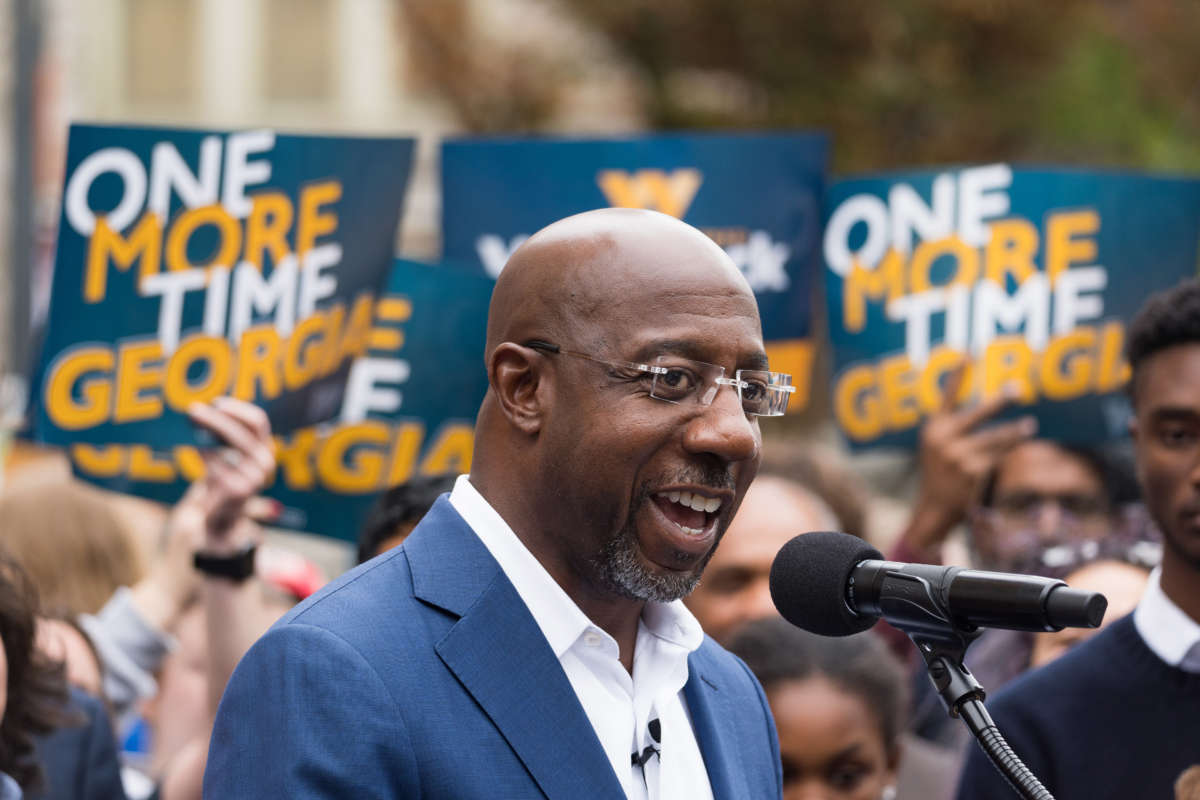Although it’s likely that Democrats will maintain control of the Senate in the next session of Congress, experts warn that the Georgia runoff election between Sen. Raphael Warnock (D) and his challenger Herschel Walker (R) remains critical for the party.
Democrats have attained 50 seats in the Senate, which — along with Vice President Kamala Harris’s tie-breaking vote — technically means they’ll run the Senate chamber no matter what. But a 50-50 split still comes with significant limitations.
Certain rules in the Senate do not hinge on the vice president’s tie-breaking vote, and thus require the establishment of a power-sharing agreement when there is a split chamber. That was the case in early 2021, when Democrats and Republicans agreed that all committees would include an equal number of members from both parties, as opposed to the party in power having slightly more seats in each committee.
If Warnock loses his reelection bid to Walker next month, Democrats will have picked up one Senate seat in the midterms but also lost one seat, meaning that the power-sharing agreement will likely be extended through 2025. If Warnock wins, however, Democrats will have 51 seats in the Senate, meaning that the arrangement will no longer be necessary.
If the 50-50 split becomes a 51-49 majority favoring Democrats, this would open up opportunities for the party to pursue President Joe Biden’s agenda, as well as to hold former President Donald Trump accountable.
The current power-sharing agreement resulted in Republicans blocking a commission to investigate the January 6 Capitol attack, which is why the investigation was taken up by the House of Representatives. Republicans will likely control the House next year and end the commission’s work — but with the power-sharing agreement out of the way, Democrats in the Senate could theoretically establish a new committee on the Capitol attack, or have one of the standing committees investigate, picking up the work of the House select committee.
An extra Democratic seat in the Senate would also make it harder for Republicans to move to impeach Biden in that chamber.
“A Democratic victory in the Georgia run-off is hugely important because a 51-49 does not require power-sharing — which Democrats will want if a Republican House pursues impeachment and other wastes of time and money,” wrote political writer Nicco Mele.
Having 51 Senate seats instead of 50 would mean that Democrats wouldn’t be as beholden to right-wing Senators Kyrsten Sinema (D-Arizona) and Joe Manchin (D-West Virginia), who have blocked numerous Democratic proposals over the past two years.
With one additional Senate seat in their column, Democrats could worry less about the 2024 senatorial elections, when they and their independent allies will have to defend 23 seats total, as opposed to Republicans, who will only have to defend 10 seats.
Biden has stressed the importance of the Georgia runoff race for Democrats.
“It’s always better with 51, because we’re in a situation where you don’t have to have an even makeup of the committee … But it’s just simply better,” Biden said at a recent press conference. “The bigger the numbers, the better.”
We have 9 days to raise $50,000 — we’re counting on your support!
For those who care about justice, liberation and even the very survival of our species, we must remember our power to take action.
We won’t pretend it’s the only thing you can or should do, but one small step is to pitch in to support Truthout — as one of the last remaining truly independent, nonprofit, reader-funded news platforms, your gift will help keep the facts flowing freely.
